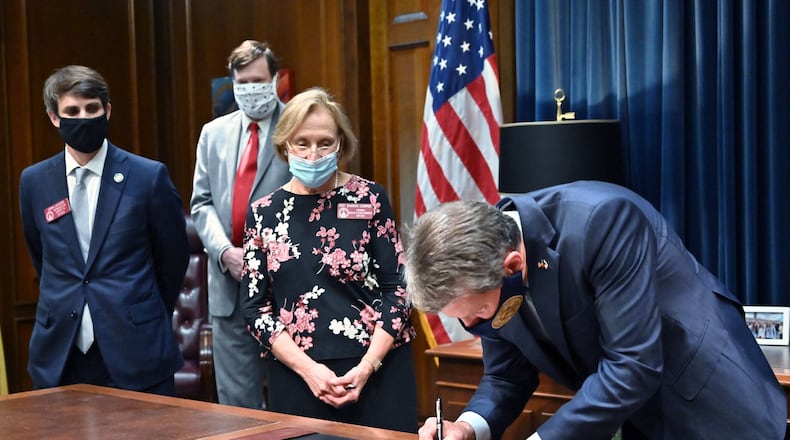A Georgia lawmaker who operates senior care facilities is pushing a bill to weaken reforms adopted in 2020 to protect residents of senior care homes.
State Rep. John LaHood, R-Valdosta, sponsored a bill to change new staffing requirements that cover both assisted living communities and large personal care homes. LaHood presented House Bill 1531 to a committee Tuesday and said the changes would provide needed flexibility for staffing during a critical, statewide nursing shortage. LaHood said the changes would not reduce protections for seniors, because providers must staff above the required minimums, when necessary, to properly care for residents.
“It puts a couple of practical measures in place to help alleviate some of the staffing challenges while not compromising standards of care,” LaHood said Tuesday during a hearing on the bill.
Advocates for seniors and an influential lawmaker who pushed through the original reforms said Tuesday they oppose the proposal.
“I’m very concerned,” said Rep. Sharon Cooper, R-Marietta, the lead sponsor of the reform bill that Gov. Brian Kemp signed into law in 2020. “We fought so very hard to improve the quality of care for our citizens living in these facilities. I’m against any change that would weaken the current law.”
Cooper is the chairwoman of the House Health and Human Services Committee.
The bill was assigned to the House Human Relations and Aging Committee, where Chairman Jesse Petrea, R-Savannah, decided Tuesday to defer a vote on the bill after advocates voiced concerns. He asked LaHood to continue working on the legislation.
LaHood is president of Fellowship Senior Living, which operates senior care facilities in Georgia and Florida. He was a co-sponsor and strong supporter of the bill Kemp signed in 2020 and said that the changes were needed. But he said the staffing shortages that are crippling hospitals, nursing homes and other care facilities across the state are also making it difficult for the senior care industry to meet the law’s new requirements.
The bill would allow the homes to meet minimum monthly requirements for nurse staffing, instead of the current weekly requirement for nursing hours. The total nursing hours wouldn’t change, but they could be provided in one or two weeks of the month, for example, instead of having a nurse present every week. The bill also calls for eliminating the requirement for at least two staff members to be present in the facilities at all times. The bill would permit one staff member if there are fewer than 12 residents during the day and 15 residents at night in memory care units. Outside of memory care, one staff would be enough if there are fewer than 15 residents in the facility during the day or fewer than 20 residents at night.
The 2020 reforms came in response to an investigative series by The Atlanta Journal-Constitution that exposed hundreds of cases of neglect and abuse at assisted living facilities and large personal care homes whose marketing materials promised attentive care in comfortable, well-appointed buildings. The AJC’s series also uncovered a weak and permissive oversight system in Georgia that failed to protect residents and didn’t provide families with easy access to information about inspections.
Assisted living facilities and large personal care homes offer a residential model for private-pay residents and are regulated at the state level. They are different from nursing homes, which are regulated primarily by the federal government and cater to sicker residents whose bills are often covered by Medicare or Medicaid.
The 2020 reforms called for comprehensive changes inside assisted living facilities and personal care homes. Along with the new nursing requirements, the 2020 law required certification of memory units, licensing of administrators, and increased staffing and training requirements. Homes also have to prove they have the financial means to operate before they get a license and must disclose any financial problems that come up after they open.
“HB1531 will undo all the work the legislature did to reform Assisted Living and Memory Care,” said MaryLea Boatwright Quinn, director of government affairs for the Georgia Chapter of the Alzheimer’s Association. “The legislature should not be changing quality of care regs based on economy, markets or workforce shortages. Care standards should remain in place and we should work together for solutions to the healthcare workforce challenges. The needs of people with dementia living in memory care have not changed since [the new law] was signed by the governor.”
About the Author
The Latest
Featured



